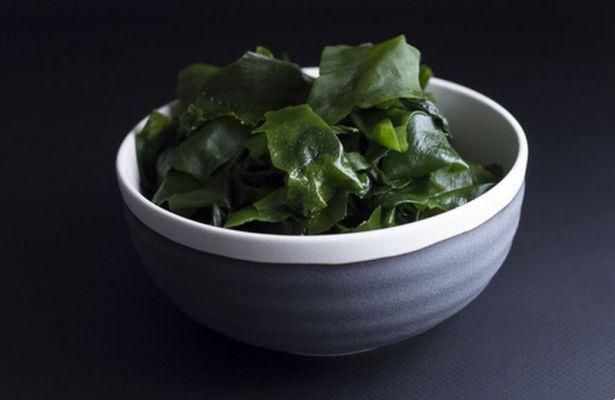
Wakame seaweed: nutritional properties
L'Alga wakame is an ingredient of macrobiotic cuisine, but lately it has also found diffusion in different and more widespread diets in the West. In particular, ethnic and vegetarian and vegan cuisine use it to a large extent, the latter mainly thanks to its nutritional principles.
Rich in minerals, wakame is used both as a food and as a food supplement: it iodine is the most present mineral, followed by football, magnesium, phosphorus, potassium, Vitamin C e B vitamins.
Wakame seaweed also contains fucoxtin, a substance capable of controlling body weight.
To benefit from its qualities, it is good to consume the whole seaweed, and not as a food supplement: in this way it is possible to provide all the nutrients in an ideal synergy for absorption and use by our body.
Integrating wakame seaweed into your diet is simple: you can use dried crumbled in soups, salads, or found in water. The volume increases when they are rehydrated.
An immediate and tasty way to use wakame seaweed is to prepare the zuppa di miso: it is a real panacea and in macrobiotic cuisine it is a natural remedy that can also rebalance the functioning of the intestine and provide important minerals. The flavor of the wakame seaweed is relatively strong, of the sea, but it is easily covered when combined with other foods.
To avoid taking too much iodine it is advisable to avoid using salt (both natural and iodized) in large quantities and / or in addition to recipes that contain wakame seaweed.
Read also 3 macrobiotic recipes >>
Alga wakame e thyroid
Wakame seaweed is a brown saltwater algae, and therefore its iodine content is relatively high, especially compared to other foods.
Due to the known effects that iodine has on the functioning of the thyroid gland and on stimulation of thyroid functions, the wakame seaweed can be a useful help for those suffering from disorders related to hypotoridism, and therefore to a "sluggish" or slowed functioning of the toroid.
I symptoms of a slowed functioning of the thyroid are:
> Fatigue and weakness, asthenia;
> trough;
> weight gain without justified correlation with a change in quantity and quality of food;
> swelling;
> constipation;
> skin dry and thinning;
> loss of hair.
These symptoms can also be transient, and attributable to the change of season, especially between autumn and winter. In this period of the year it is possible that this gland goes a little "at rest" and that it slows down its functioning without there being any real diseases.
To diagnose more complex diseases, however, it is necessary to perform in-depth examinations and ask your doctor or specialists for advice.
In particular, care must be taken when taking medications that affect the functioning of the thyroid gland: the wakame seaweed, due to its high iodine content, could, like other foods with similar properties, interact with any medical treatments.
The majors producers of wakame seaweed are Japan, China and Korea, but they also come from the north coast of France.
It is useful to buy products from known provenance and from certified crops or harvesting in the open sea and as clean and unpolluted as possible, to avoid any contamination by arsenic.
The wakame seaweed, in fact, grows mainly in depth, where it is more likely to have water contaminated with heavy metals harmful to health.
Read also Soy and thyroid health >>


























